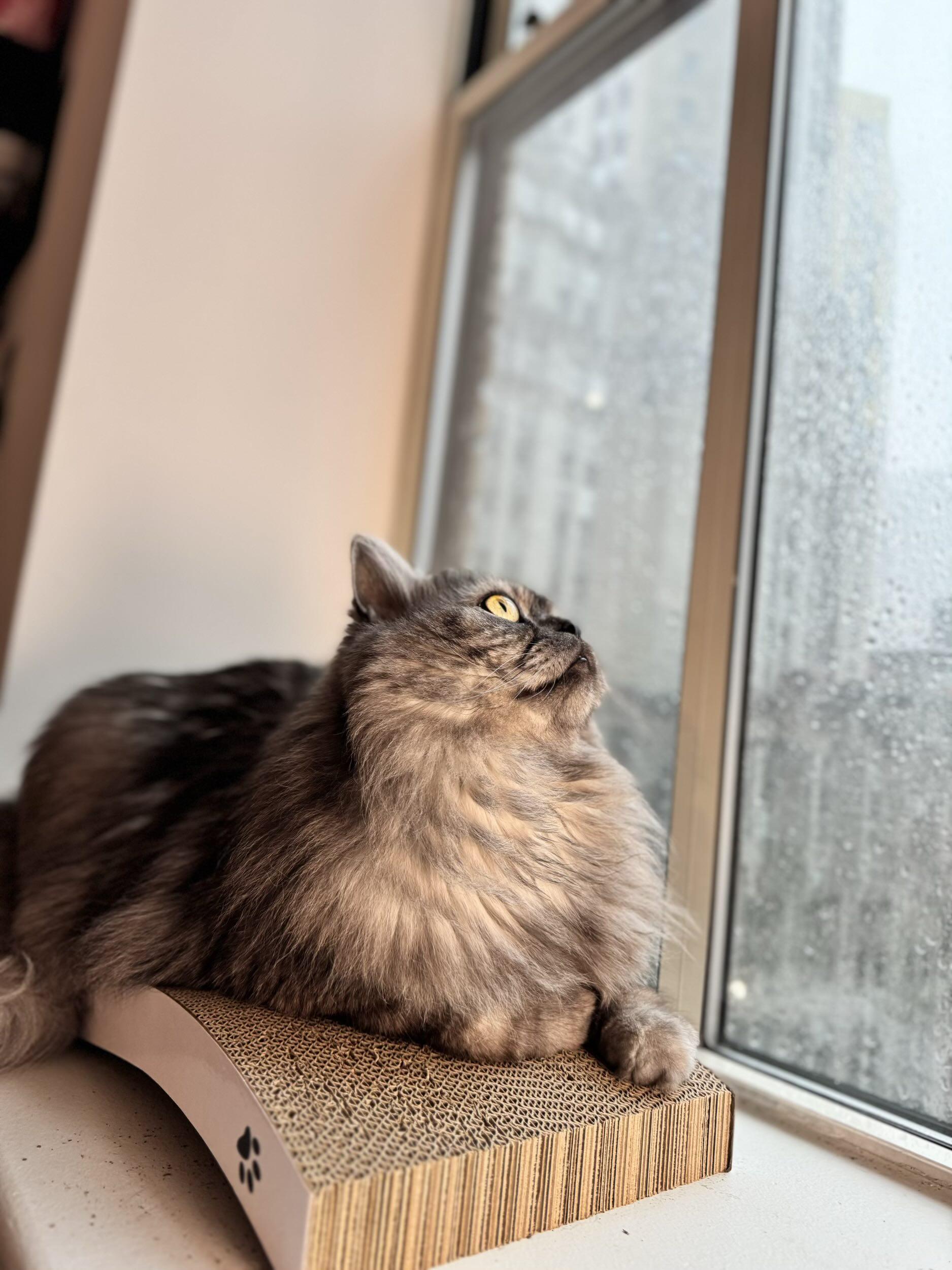2025-11-19 14:39:15
Thank you all for 3,000 followers on here! Here’s a photo of Danny to celebrate the occasion ☺️
3 years into being part of Mastodon, I continue to be impressed with how wonderful the people here are and how much this social network actually FEELS social. People replying to one another, having conversations, learning things, sharing moments of joy, making friends.
Mastodon brought my business clients, helped me gain confidence in my own voice, freed me from dependence on big tech and algorithms, rekindled my interests, introduced me to incredible people and projects, and served as a source of hope in humanity in the times when cynicism and nihilism felt all but inevitable.
I love our little corner of the internet, and am so glad that it’s still here despite everyone who professed it was doomed to fade into irrelevance.
Thank you to everyone reading these words for being here on the Fedi. The world is a little better thanks to your choice to support an independent web.
2025-10-19 16:55:56
I'm not usually one to get excited over #motorcycle gear, but I just picked up a Nelson Rigg Stormrider rain suit on closeout for about 65% off and I'm totally impressed with it so far. I rode 24 miles to work today in a driving rain with high winds and arrived completely dry and comfortable. First impressions are that this was a fantastic buy, and something I'm going to use un…
2025-12-17 02:19:21
Just got a new monitor, an ASUS ProArt PA32QCV. First time I've had a high density display for my Windows desktop. It's nice!
(Eloi friends, you are welcome to mock me on this one: it took Windows forever to catch up on Retina and it's still behind.)
2025-10-14 08:09:48
Functional Donoho-Elad-Gribonval-Nielsen-Fuchs Sparsity Theorem
K. Mahesh Krishna
https://arxiv.org/abs/2510.09609 https://arxiv.org/pdf/2510.09609
2025-10-08 09:14:39
Bilevel optimization for learning hyperparameters: Application to solving PDEs and inverse problems with Gaussian processes
Nicholas H. Nelsen, Houman Owhadi, Andrew M. Stuart, Xianjin Yang, Zongren Zou
https://arxiv.org/abs/2510.05568
2025-10-22 06:35:00
2025-10-14 15:44:06
Crosslisted article(s) found for cs.IT. https://arxiv.org/list/cs.IT/new
[1/1]:
- Functional Donoho-Elad-Gribonval-Nielsen-Fuchs Sparsity Theorem
K. Mahesh Krishna
2025-10-14 10:09:08
Asteroseismic investigation of HD 140283: The Methuselah star
M. S. Lundkvist, J. R. Larsen, Y. Li, M. L. Winther, T. R. Bedding, H. Kjeldsen, T. R. White, M. B. Nielsen, G. Buldgen, C. Guillaume, A. L. Stokholm, D. Huber, J. L. R{\o}rsted, P. Mani, F. Grundahl
https://arxiv.org/abs/2510.11532
2025-11-10 18:05:47
Wikipedia informs me Jabberwocky was originally a parody of Anglo-Saxon Poetry and þis form is delightful.
Twas bryllyg, and þe slythy toves
Did gyre and gymble in þe wabe:
All mimsy were þe borogoves;
And þe mome raths outgrabe.
2025-11-09 01:32:27
Once again impressed by WiThings. Just bought a new Body Comp scale and it's a lovely new product experience. Their software quality is excellent. Just a great experience.
(And a big raspberry to InBody: did not like their comparable product.)



